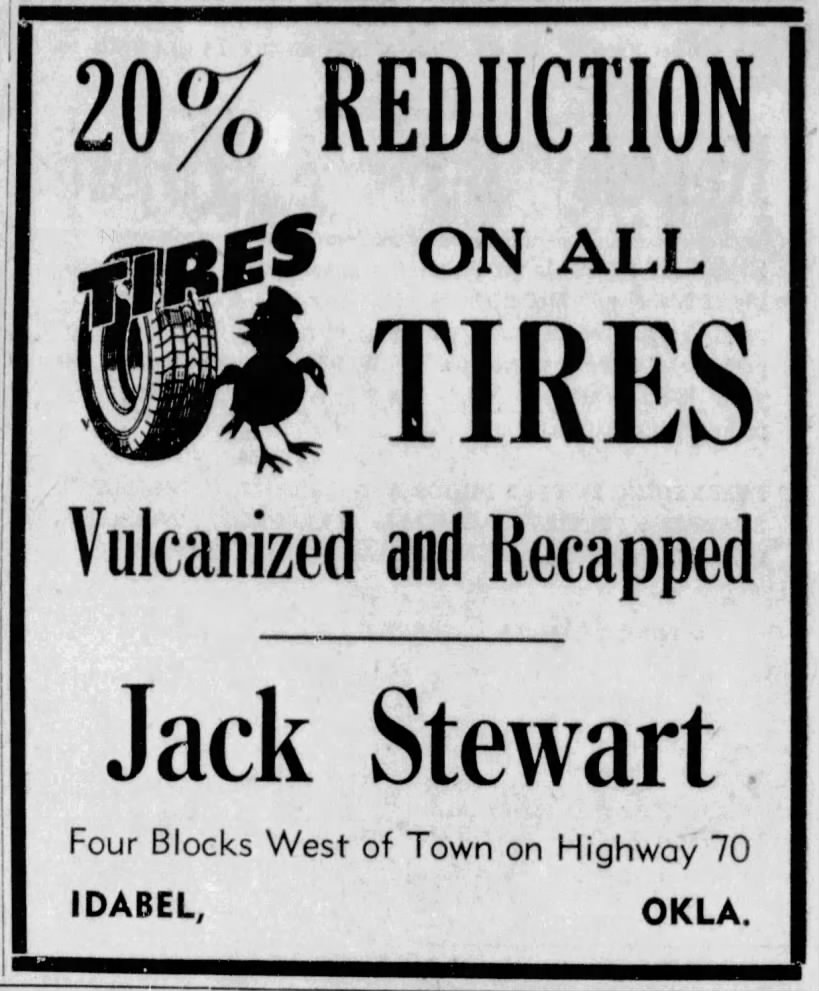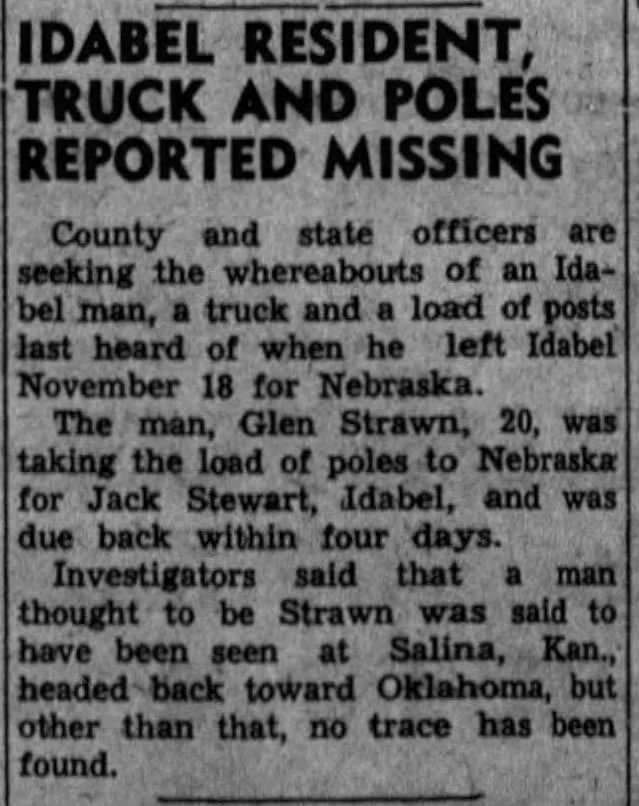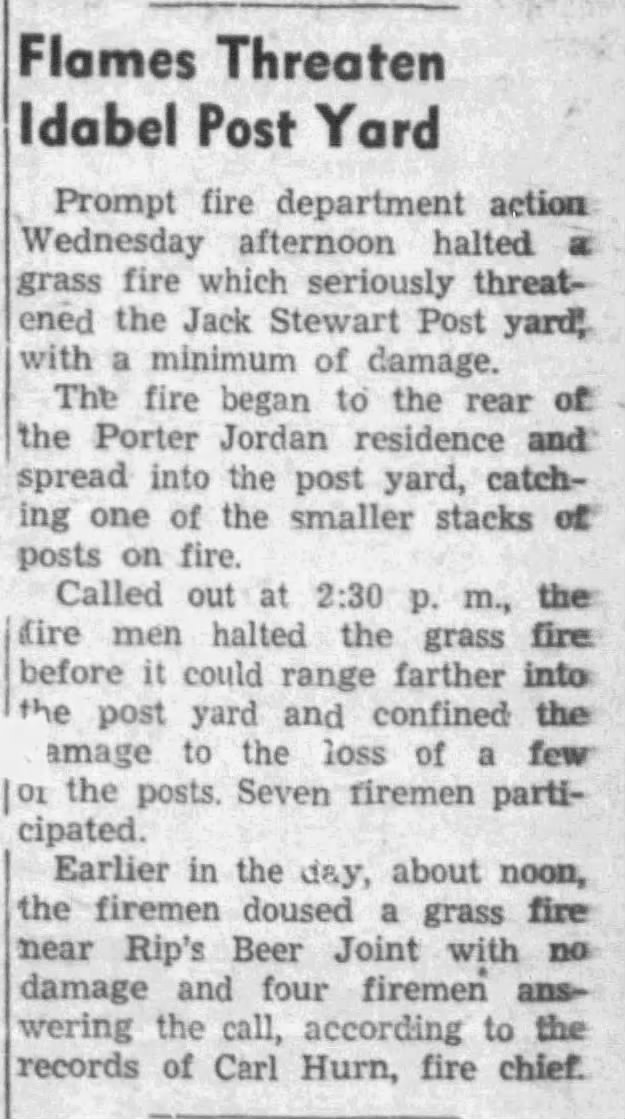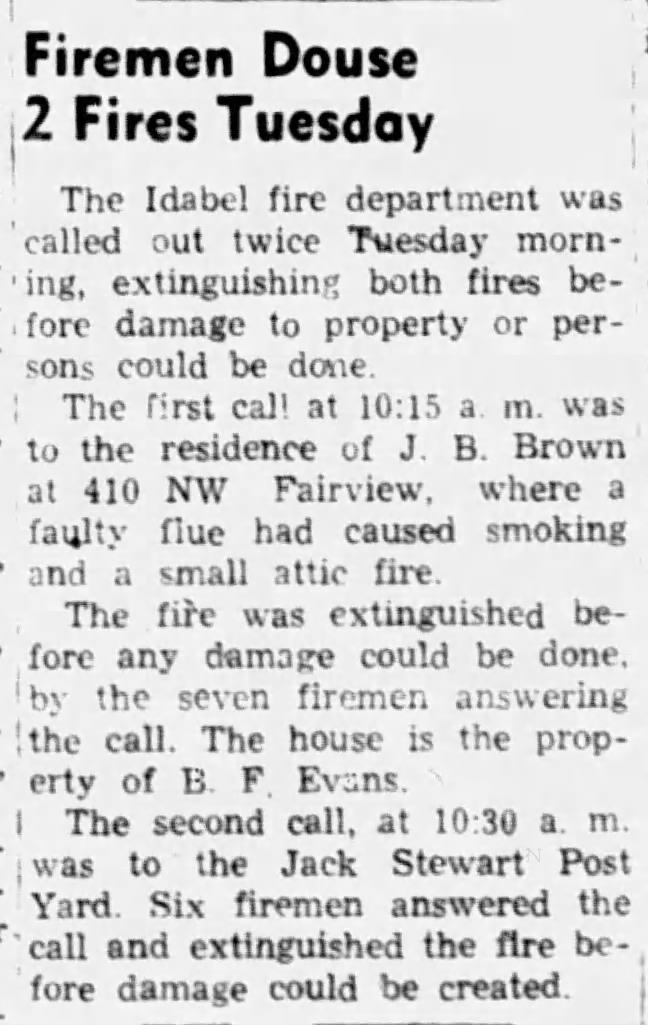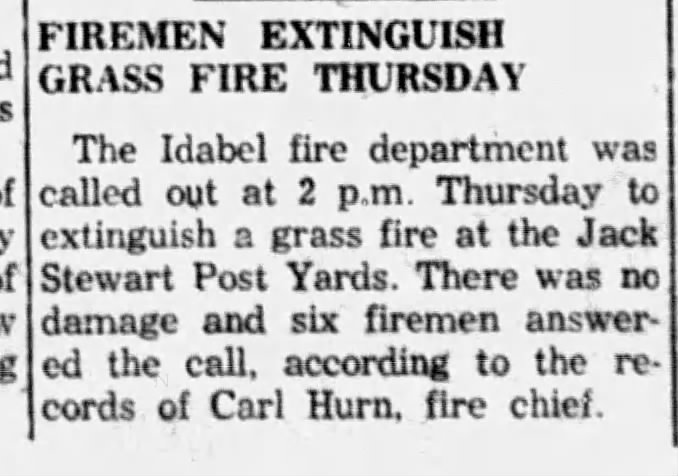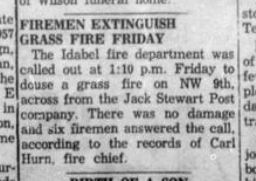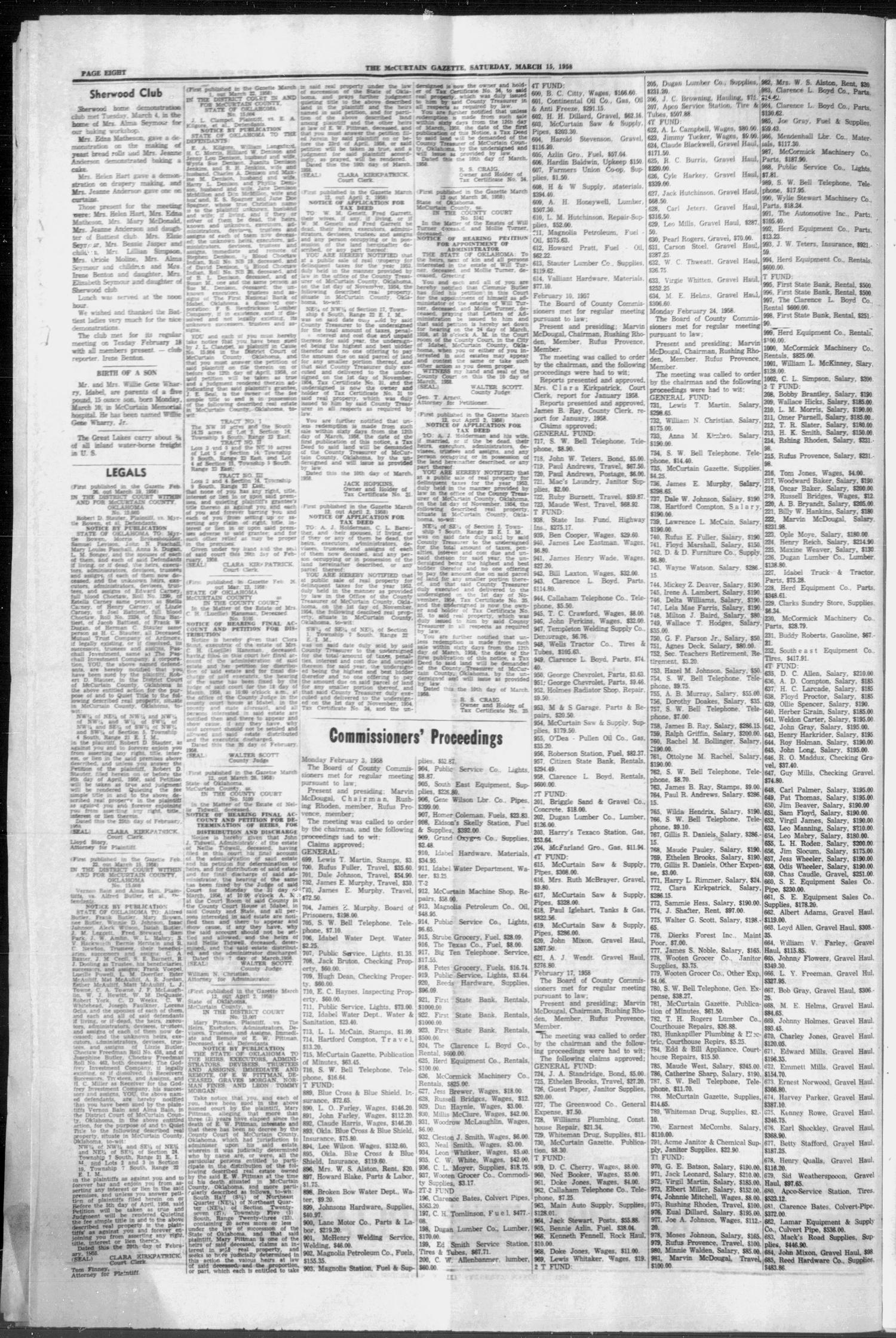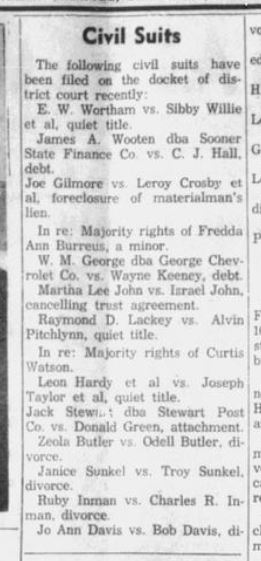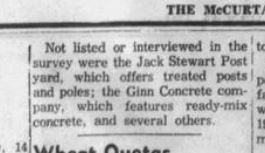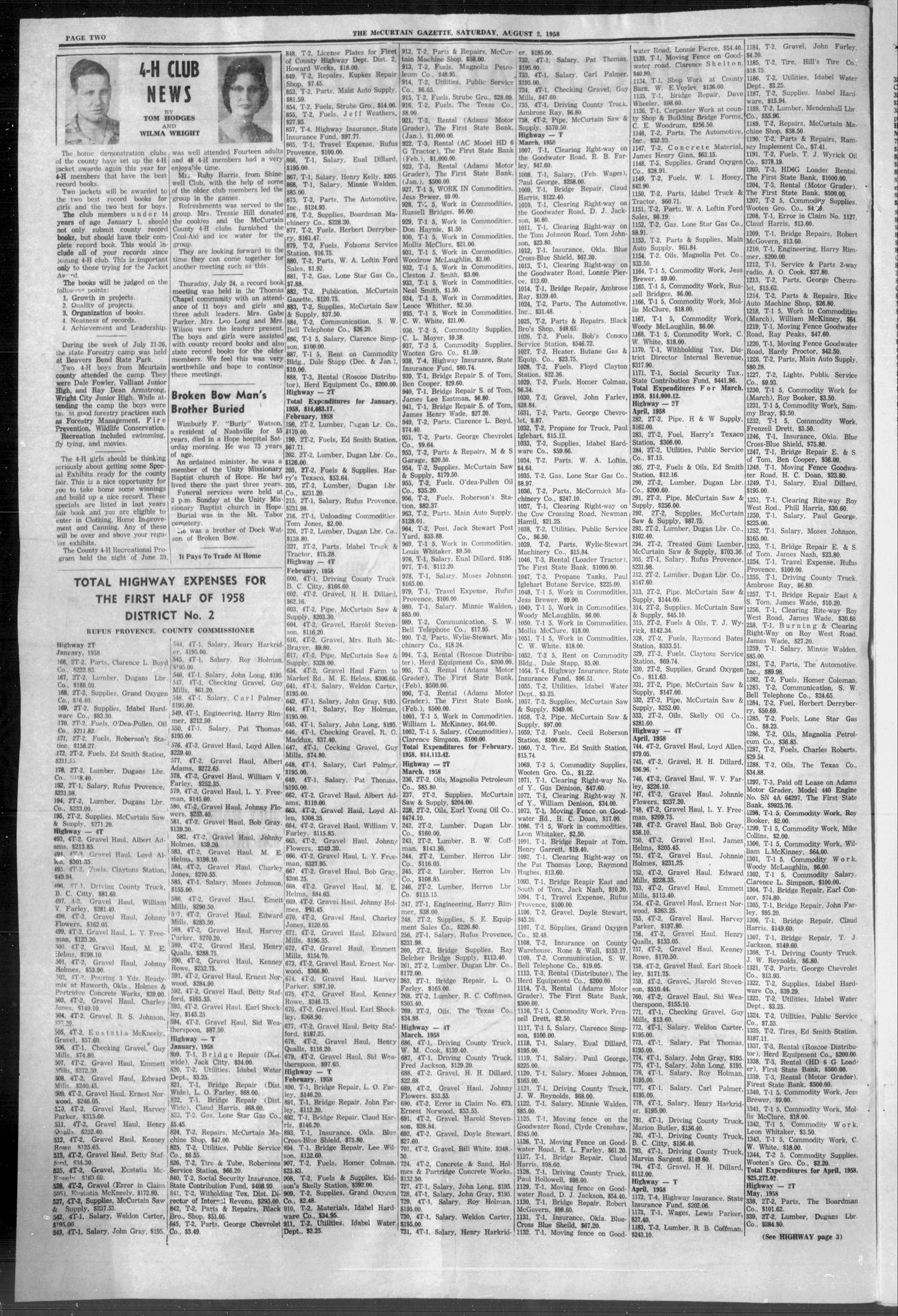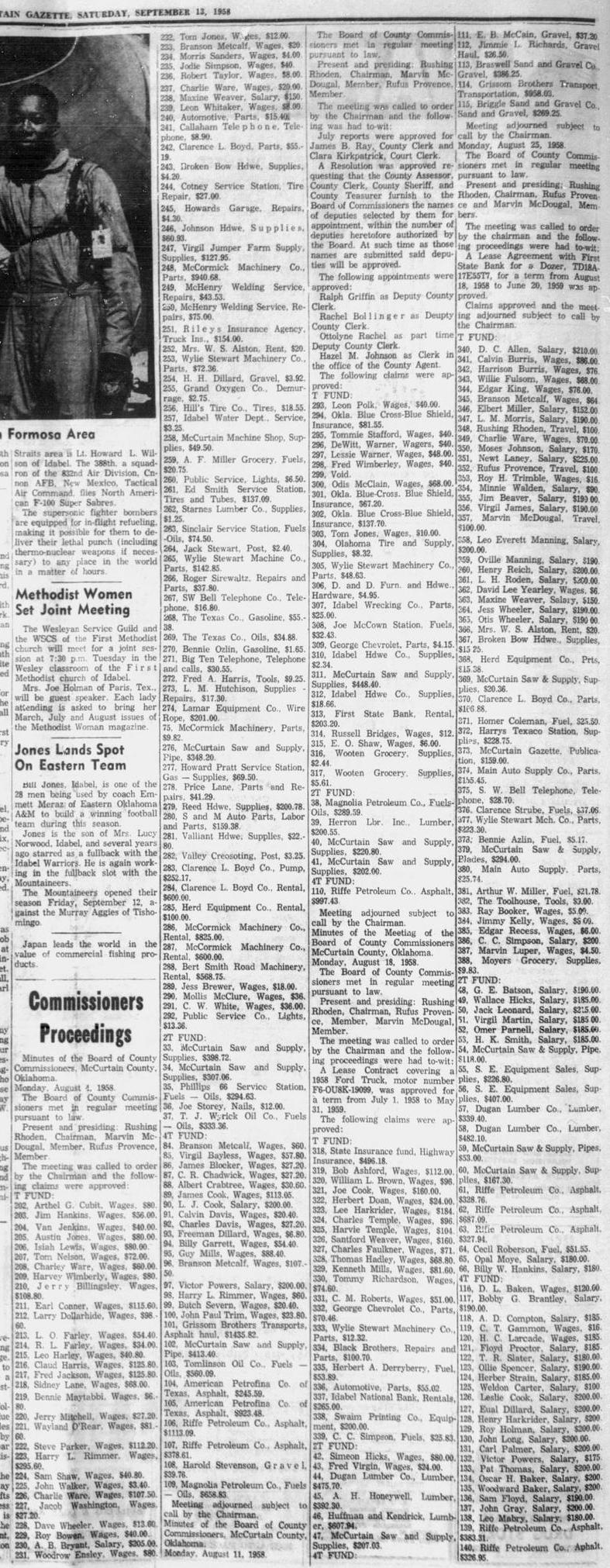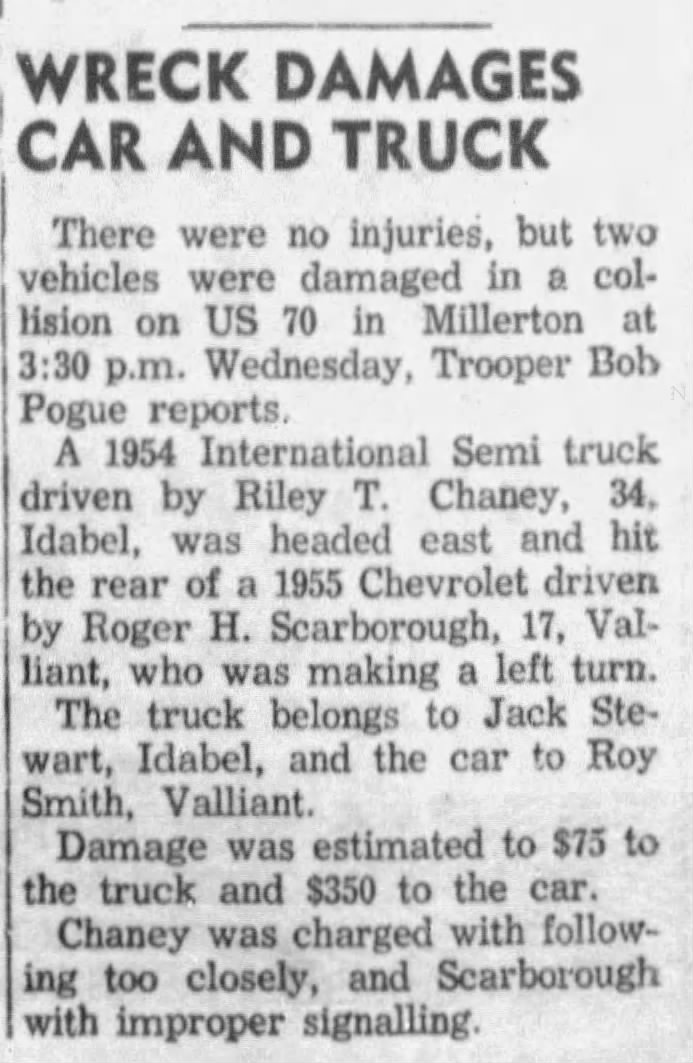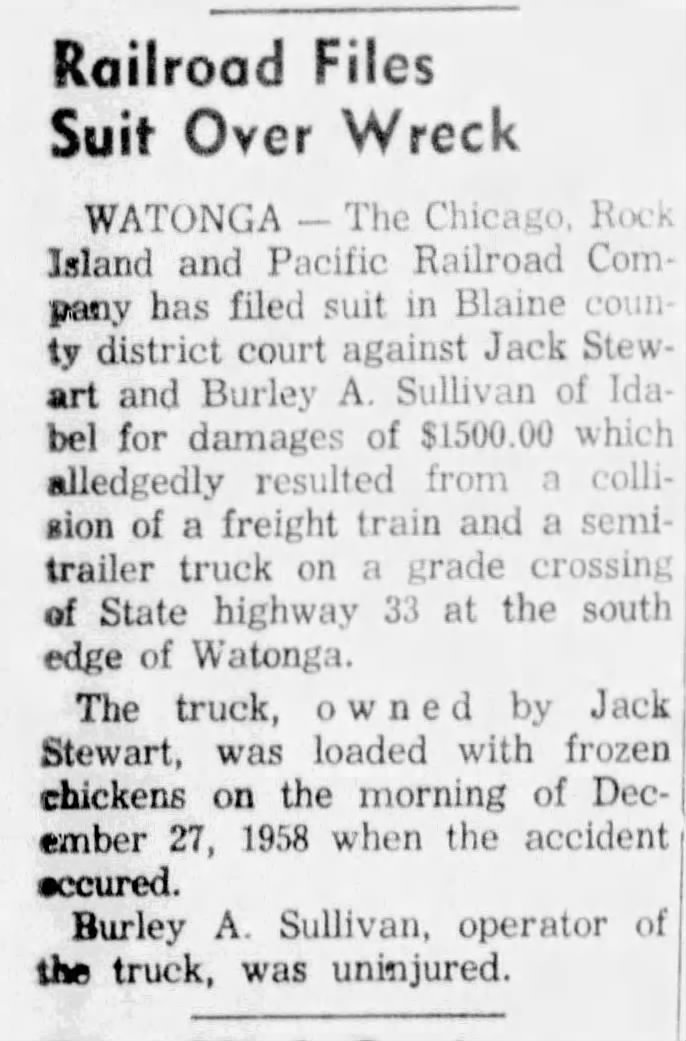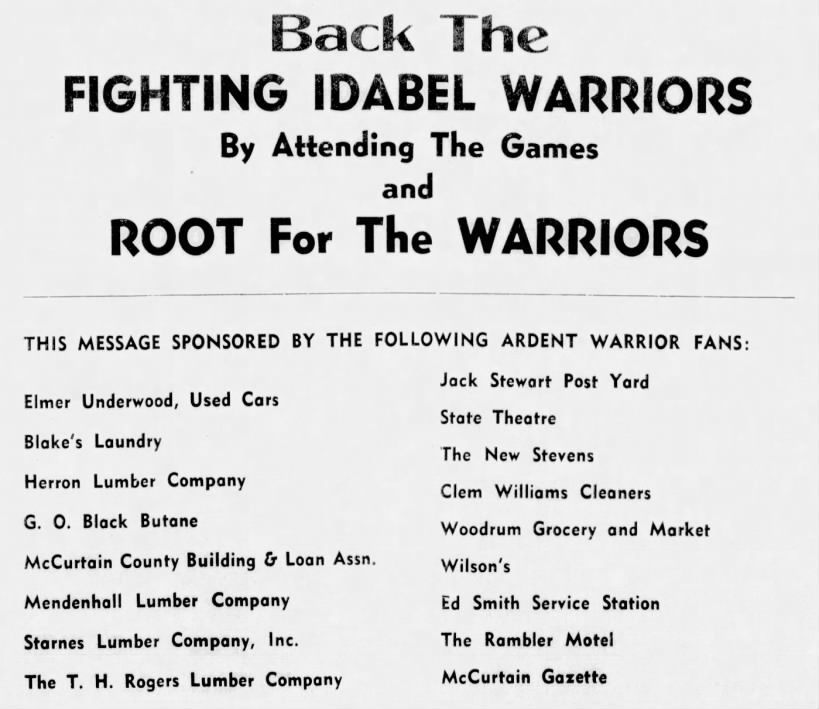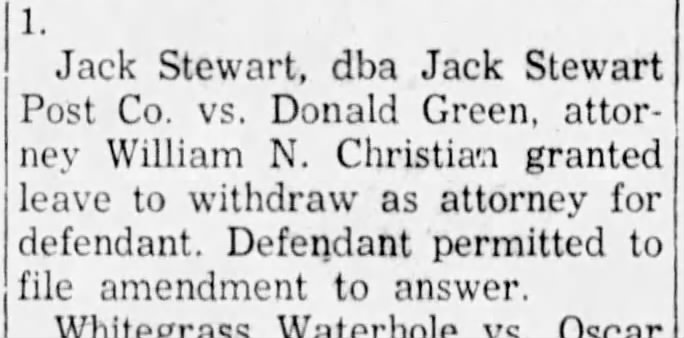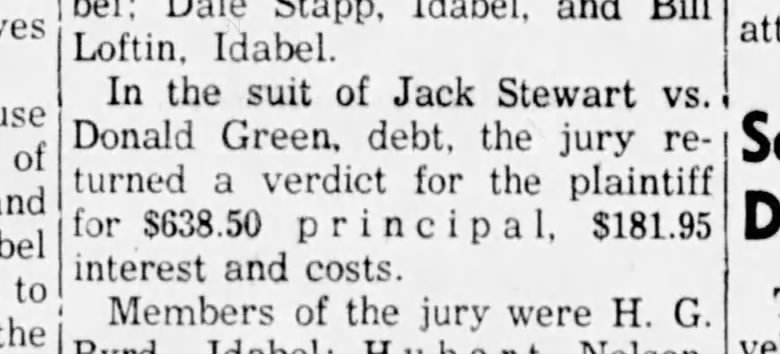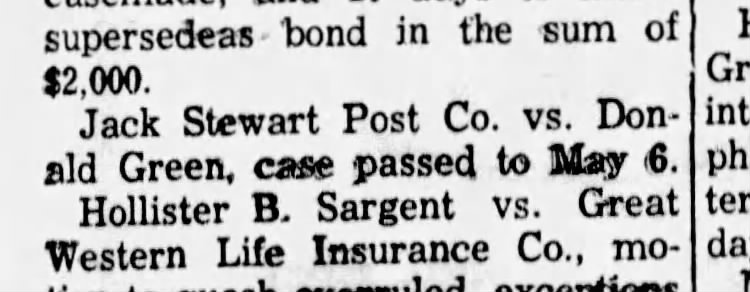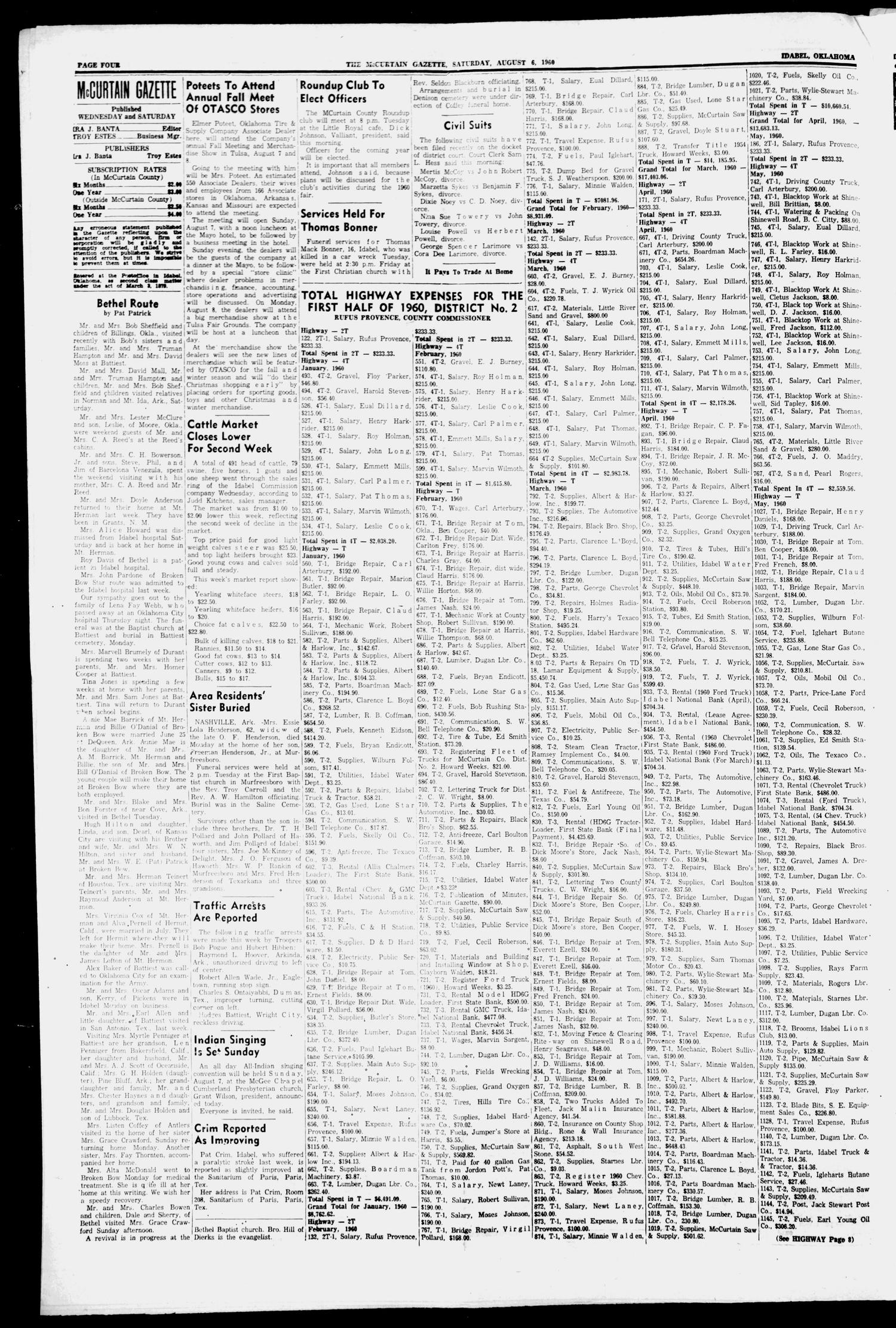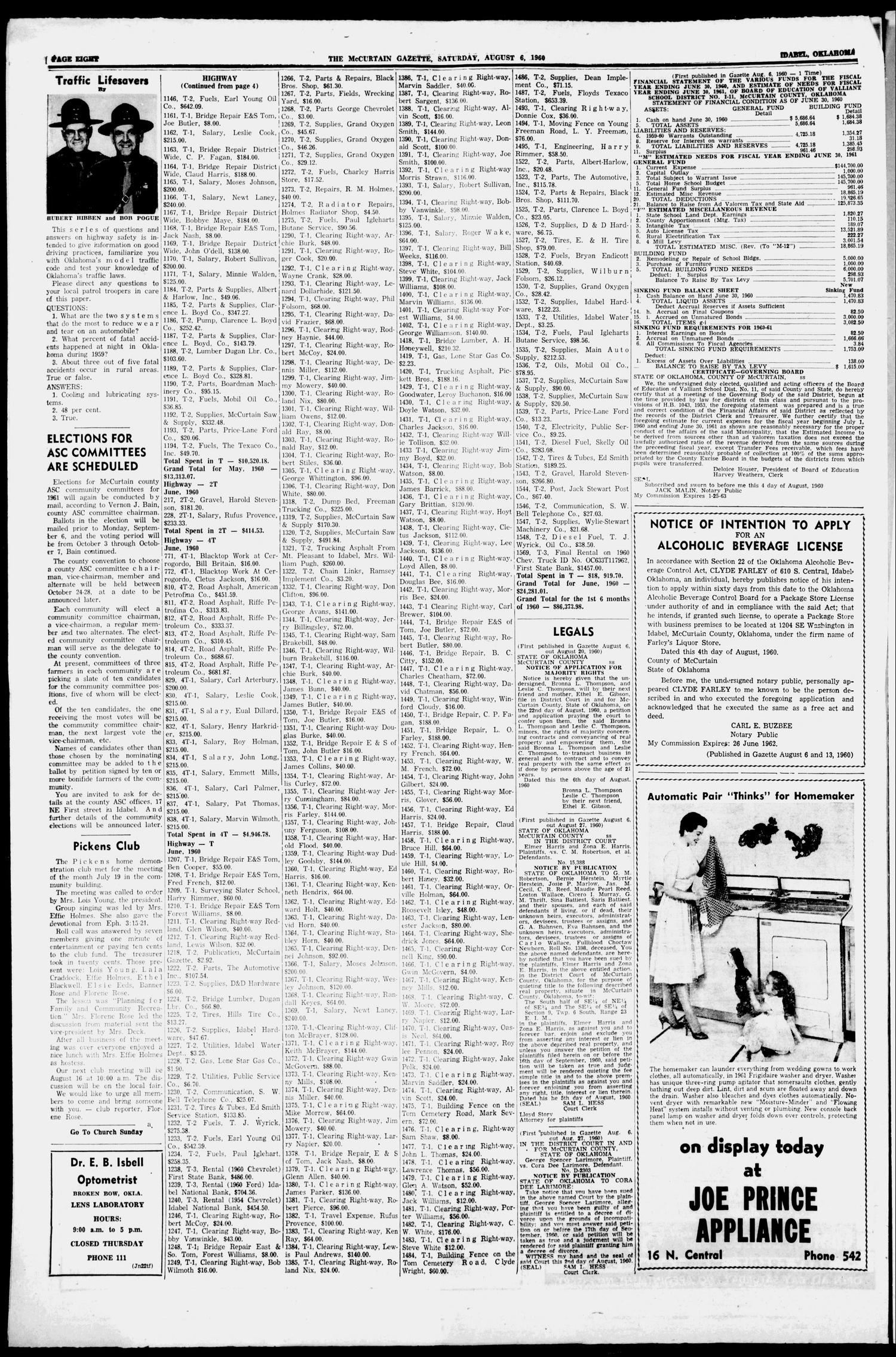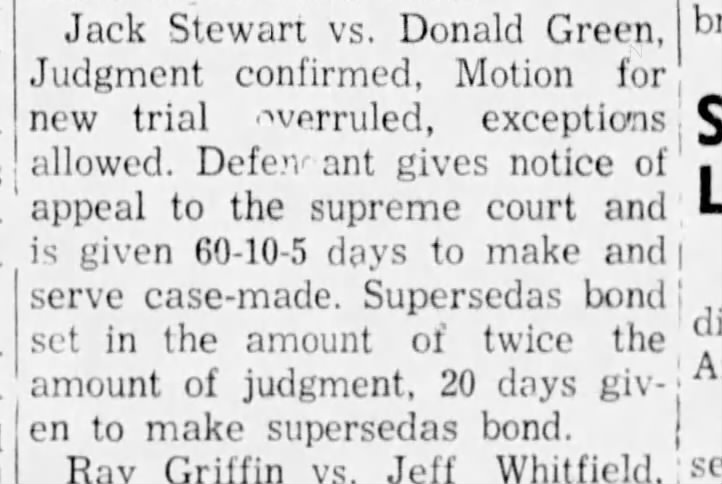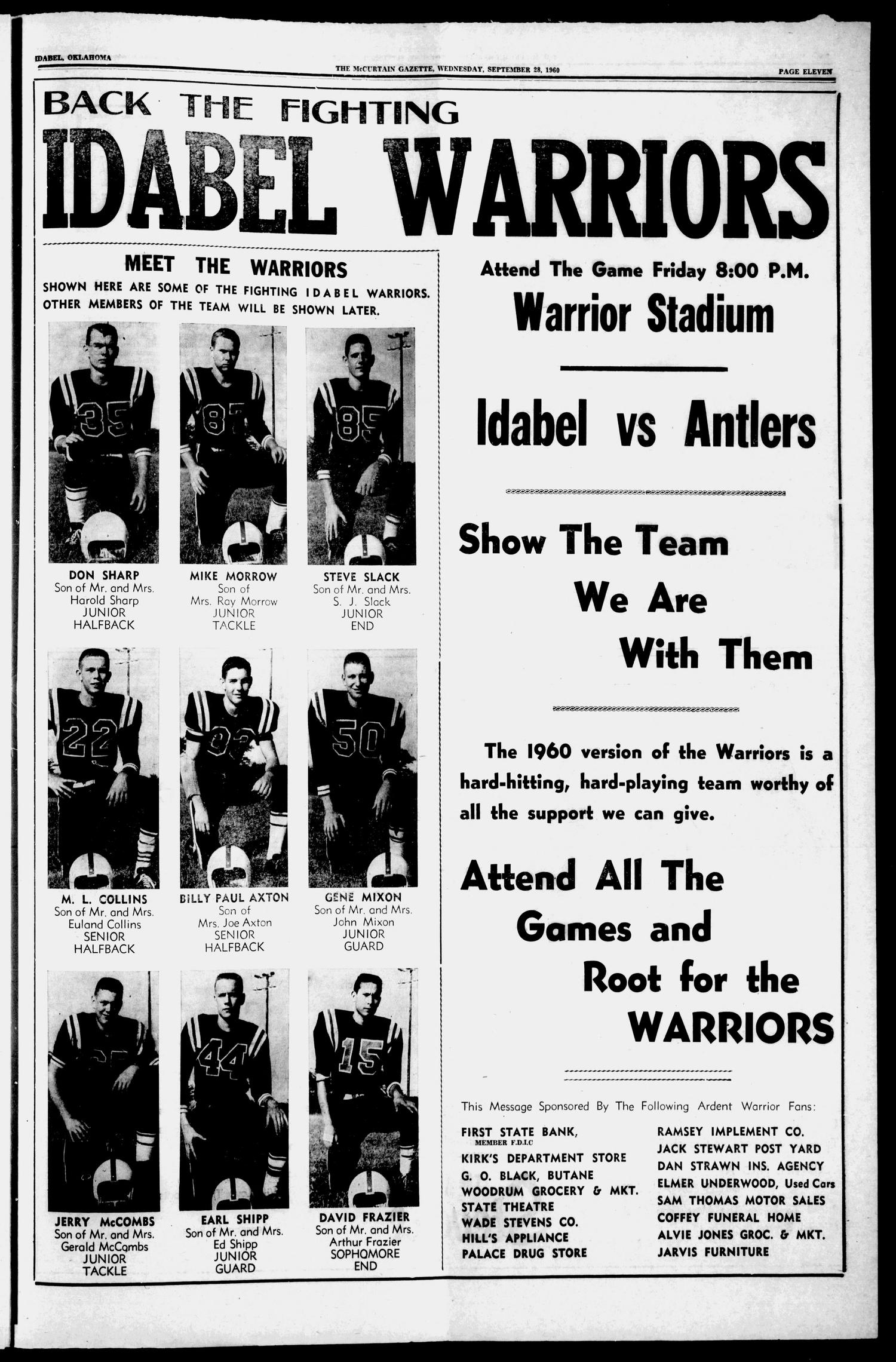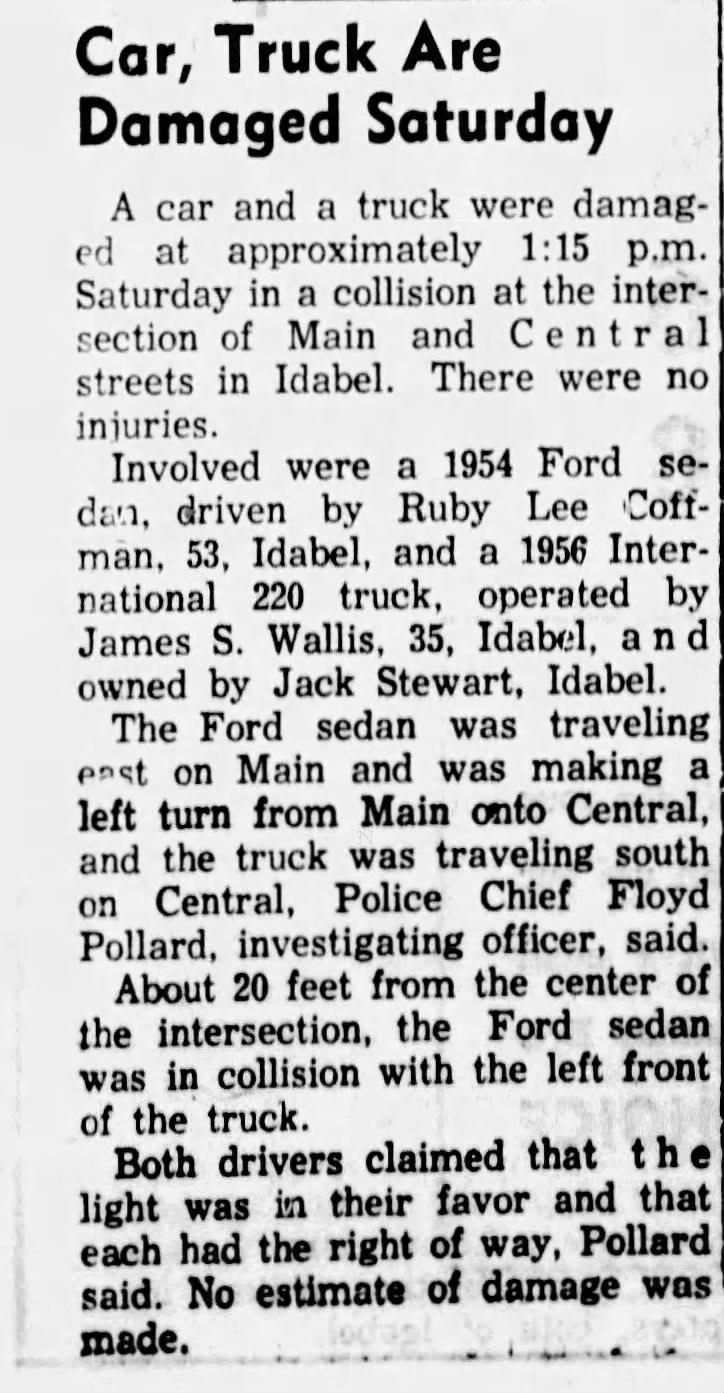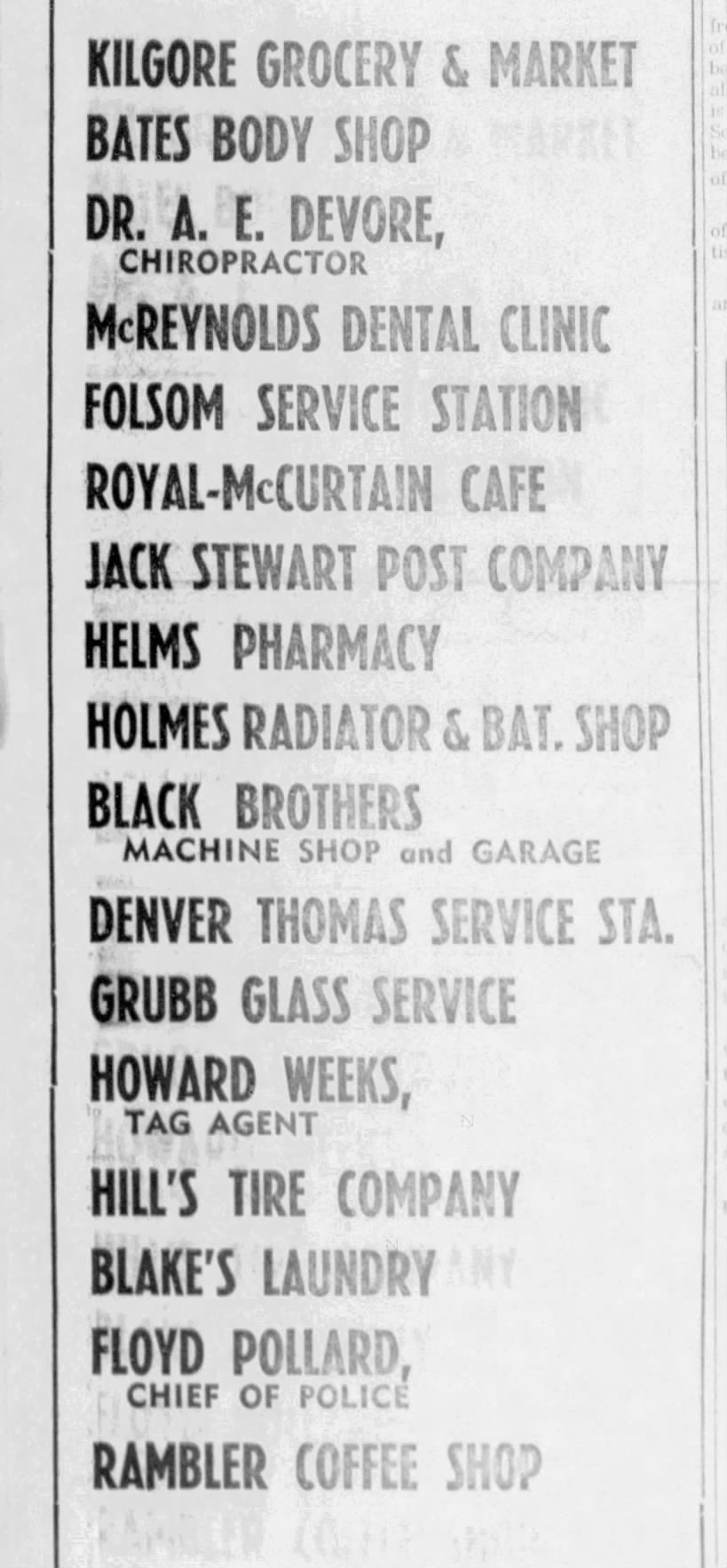❧ Jack Stewart Post Company
After Jack's stint in the army during World War II and he returned home, he noticed a small post business in Garvin. This business made wooden posts for fences, etc., and shipped them out across the state. Jack decided he could do this too and copied the business model, but on a greater scale. He bought a two vats to boil the posts in creosote, a wood preservative derived from the distillation of tar from wood or coal, protecting outside wood against termites, fungi, mites and other pests. In 1947, the creosote treatment plant began under the name "Jack Stewart Post Yards," though it would be renamed later to "Jack Stewart Post Company."
The business model was thus: Jack bought wooden posts for 15 cents from some people in the Ouachitas, somewhere around Hochatown, and paid an additional 5 cents to have the bark removed. These posts came in a few different sizes: 2-inch diameter (for chicken coops, etc), 3-inch, and 4-inch (corner posts), with lengths ranging from 6 feet to 16 feet.
To help with transport, Jack amassed a collection of trucks. At first the posts sold locally. It was Marvin's job to help load the trucks that came to carry posts to Kansas, where they could sell the 2-inch posts (which cost 35 cents) for $2 in Kansas. Marvin was paid a penny a post. After a while, Jack put Marvin in charge of watching the vats at night.
The business was not problem-free, however; fires were a frequent danger (both those that started within the post yard and out), as well as trucking accidents. Still the post business was quite successful, eventually reaching a national-stage.
In the late '50s, increasing state regulation on the manufacturing and selling of creosote posts led Jack to consider other uses for his trucks. At first this began as freelance trucking but the company trucks were soon upgraded into refrigerated trucks. In 1960, the company formally transitioned into a trucking business and hauled fresh chicken from a local processing. This in turn evolved into hauling more, such as produce from California to Dallas and New Orleans.
When Jack retired in the 70's, he passed the company to Marvin, who in turn ran the company until around 1990 when he sold it.
